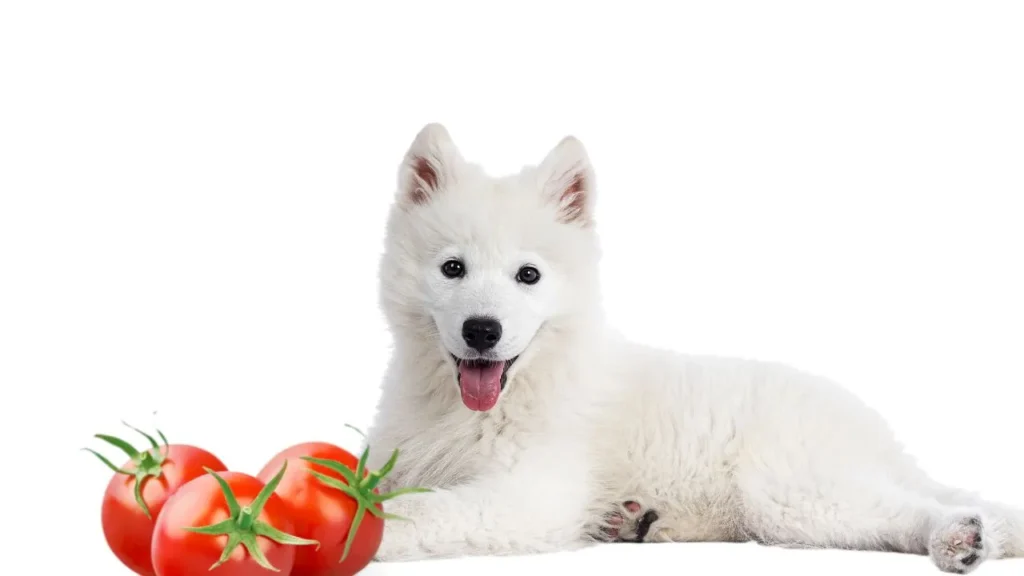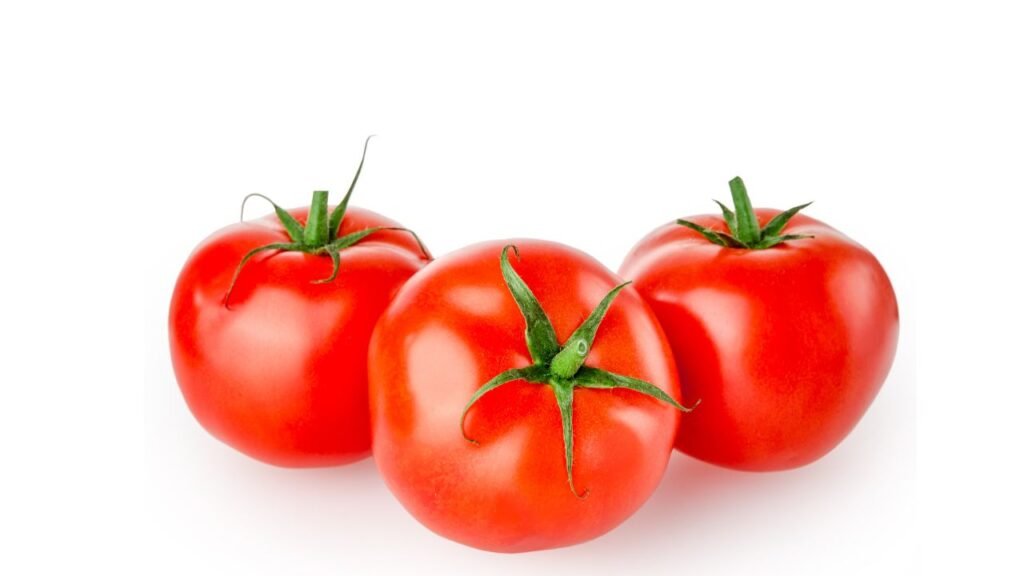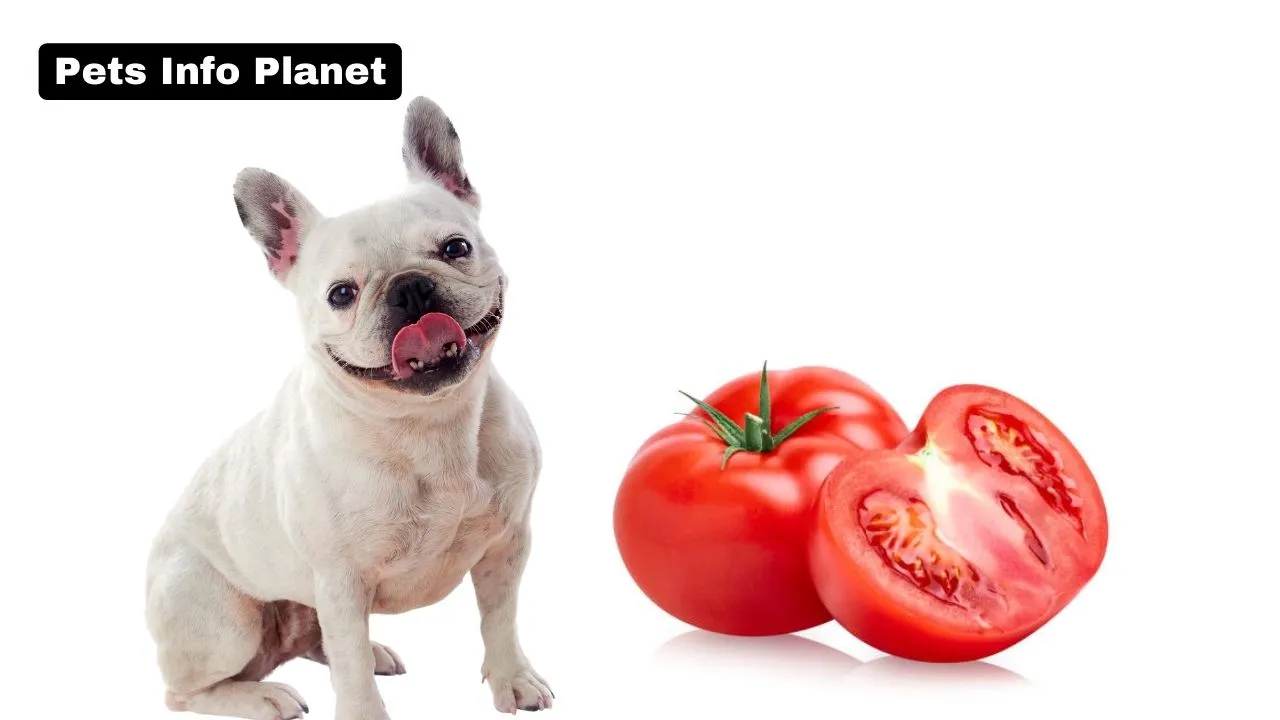Tomatoes, a staple in many households, find their way into a variety of culinary creations. As humans, we savor their vibrant flavor and relish their versatility in salads, sauces, and snacks. However, when it comes to our four-legged companions, such as dogs, questions arise about the safety of incorporating tomatoes into their diet. In this exploration of “Can Dogs Eat Tomatoes,” we delve into the nutritional aspects, potential benefits, and possible risks associated with feeding tomatoes to our canine friends.
This informational journey aims to provide a comprehensive understanding, addressing concerns and shedding light on whether tomatoes can be a healthy addition or if they pose any threats to a dog’s well-being. By adopting a professional, engaging, and informative tone, we navigate through the nuances of canine dietary needs, highlighting key considerations for responsible pet ownership. Join us as we unravel the tomato-dog dynamic, empowering pet owners with the knowledge to make informed decisions about their furry companions’ nutritional intake.
Can Dogs Eat Tomatoes
Yes, dogs can eat tomatoes, but there are some important things to consider. Ripe tomatoes are generally safe for dogs to consume in moderation; certain parts of the tomato plant can be harmful to them. However, the actual tomato fruit itself is not toxic to dogs.
Tomatoes can actually provide some nutritional benefits to dogs. They are a good source of vitamins such as vitamin C and vitamin A, as well as fiber. However, it’s important to remember that dogs have different dietary needs than humans, and their bodies may not process certain foods in the same way.
If you decide to give your dog tomatoes, it’s best to start with small amounts to see how they react. Some dogs may be allergic to tomatoes or have sensitivities to them, which can cause digestive issues like upset stomach, diarrhea, or vomiting.
Are Tomatoes Good For Dogs

Tomatoes can be a bit tricky for dogs. While ripe tomatoes in small amounts are generally considered safe, the green parts and unripened tomatoes can be harmful to dogs in large quantities. Furthermore, some dogs may be allergic to tomatoes or have sensitivities to them. As always, it’s advisable to consult with your veterinarian before introducing tomatoes or any new food into your dog’s diet.
Health Benefits of Tomatoes
Tomatoes can offer several health benefits to dogs when given in moderation and prepared properly. Here are some potential health benefits of tomatoes for dogs:
Nutritional Value
Tomatoes are a good source of essential vitamins and minerals. They contain vitamin C, which supports the immune system, and vitamin A, which is important for eye health. Tomatoes also provide fiber, which aids in digestion.
Hydration and Weight Management
Tomatoes have a high water content, which can contribute to hydration in dogs. Additionally, the low-calorie nature of tomatoes makes them a suitable choice for dogs on a weight management plan.
Digestive Health
The fiber content in tomatoes can support healthy digestion and regular bowel movements in dogs. It can help prevent constipation and maintain gastrointestinal health.
Flavor and Variety
Adding small amounts of tomatoes to your dog’s meals can enhance taste and provide variety in their diet. This can be especially beneficial for picky eaters or dogs who require enticing flavors to encourage their appetite.
Can Dogs Eat Tomatoes Products

Yes, dogs can eat certain tomato products, but it’s important to be cautious and mindful of a few factors:
Tomato Sauce
Ripe tomatoes in small amounts are generally safe for dogs. Many commercial tomato sauces can contain additional ingredients like garlic and onions, which are toxic to dogs. High levels of salt and sugar in some sauces can also be problematic. It’s best to avoid giving dogs tomato sauce or check the ingredients carefully.
Canned Tomatoes
Plain, canned tomatoes without added seasonings are generally safe for dogs in moderation. However, excessive consumption may lead to digestive upset due to the acidity.
Tomato Soup
Most commercially prepared tomato soups may contain ingredients like onions and spices that can be harmful to dogs. Additionally, the high sodium content in soups could be better for their health.
Dried Tomatoes
Dried tomatoes, such as those found in some snacks or trail mixes, may have concentrated levels of certain compounds. It’s best to avoid giving dogs dried tomatoes, as they can be more challenging to digest.
Always check the ingredients before sharing any tomato products with your dog, and be mindful of their sensitivities.
How Can I Feed Tomatoes To My Dog
When feeding tomatoes to your dog, it’s important to follow these guidelines to ensure their safety and enjoyment:
Ripe and Fresh
Choose ripe tomatoes that are free from mold or any signs of spoilage. Fresh tomatoes are typically the best option for feeding your dog.
Preparation
Wash the tomatoes thoroughly to remove any dirt or pesticides. Remove the stems and leaves, as they contain solanine, which can be toxic to dogs.
Moderation
Introduce tomatoes to your dog’s diet in small amounts. Start with a small piece or slice and observe how your dog reacts to it. If there are no adverse reactions, you can gradually increase the amount over time.
Plain and Simple
Feed plain tomatoes to your dog without any added seasonings, salt, or spices. Avoid giving them tomato products that contain ingredients like onions, garlic, or excessive sodium.
Monitor for Reactions
After feeding tomatoes to your dog, observe them for any signs of allergic reactions or digestive issues. If you notice any adverse reactions, such as vomiting, diarrhea, or discomfort, discontinue feeding tomatoes and consult with your veterinarian.
Read More
Can Dogs Eat Watermelon? Full Guide In 2024
Can Dogs Eat Blueberries? Full Guide In 2024
Can Dogs Eat Apples? Comprehensive Guide In 2024
Conclusion
In conclusion, this comprehensive guide navigates the nuanced relationship between dogs and tomatoes, emphasizing responsible pet ownership. While ripe tomatoes offer nutritional benefits, caution is crucial due to potential risks from green parts and individual dog sensitivities. The guide highlights the diverse advantages of tomatoes for dogs, such as hydration, weight management, and digestive health, all presented in a professional and engaging tone. The cautionary notes on tomato products underscore the need for ingredient scrutiny. By providing guidelines for feeding tomatoes with an emphasis on freshness, preparation, moderation, and monitoring, this guide empowers pet owners to make informed decisions for their furry friends’ well-being.

